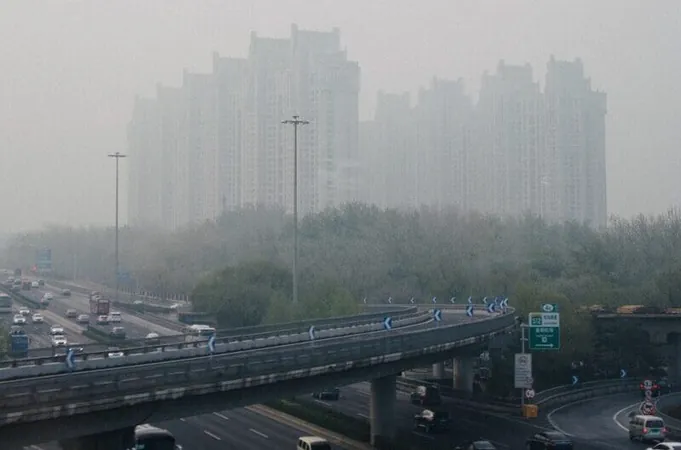
Shocking Findings: Sulfur Dioxide Pollution Linked to Rising Depression Rates
2024-12-18
Author: Arjun
A groundbreaking study published in *Environmental Science and Ecotechnology* has unveiled a startling correlation between long-term exposure to air pollution—specifically sulfur dioxide (SO₂)—and an increased risk of depression. This compelling research draws on extensive data from the China Health and Retirement Longitudinal Study, focusing on individuals over the age of 45.
The study analyzed the responses of 12,389 participants, compiling information from the years 2013 to 2020. Through a comprehensive 10-item questionnaire from The Center for Epidemiologic Studies-Depression, researchers assessed the severity of depressive symptoms among participants. Concurrently, air pollution concentrations—namely carbon monoxide (CO), ozone (O₃), nitrogen dioxide (NO₂), sulfur dioxide (SO₂), particulate matter (PM10), and PM2.5—were monitored using data from the China High Air Pollutants datasets.
The primary objective of the research was to discern the relationship between depression and exposure to various air pollutants, both singularly and in combination. Notably, sulfur dioxide emerged as a significant player, identified as “the primary and stable contributor” to heightened depressive symptoms, with PM2.5 and CO also noted for their associations. Alarmingly, the data indicated that for every increase in combined air pollution levels, the risk of developing depression surged by a staggering 38%.
Interestingly, while ozone showed no correlation with depressive symptoms, the relationship with nitrogen dioxide was found to be negligible, suggesting that not all air pollutants exert the same psychological impact.
Additional findings revealed that participants who exhibited depressive symptoms were predominantly female, housed in rural settings, single or divorced, non-smokers, non-drinkers, less engaged in social activities, and often had lower educational backgrounds.
The study's authors emphasized the urgent need for integrated air quality management strategies aimed at improving both physical and mental health. They suggested that targeting sulfur dioxide and other key pollutants could significantly mitigate the public health crisis posed by depression, particularly among vulnerable groups like middle-aged and older adults.
As the climate crisis continues to loom, the implications of this research raise an essential question: How much longer can society ignore the mental health consequences of air pollution? The findings highlight a critical intersection of environmental and psychological health, calling for immediate action to safeguard our well-being.



 Brasil (PT)
Brasil (PT)
 Canada (EN)
Canada (EN)
 Chile (ES)
Chile (ES)
 España (ES)
España (ES)
 France (FR)
France (FR)
 Hong Kong (EN)
Hong Kong (EN)
 Italia (IT)
Italia (IT)
 日本 (JA)
日本 (JA)
 Magyarország (HU)
Magyarország (HU)
 Norge (NO)
Norge (NO)
 Polska (PL)
Polska (PL)
 Schweiz (DE)
Schweiz (DE)
 Singapore (EN)
Singapore (EN)
 Sverige (SV)
Sverige (SV)
 Suomi (FI)
Suomi (FI)
 Türkiye (TR)
Türkiye (TR)